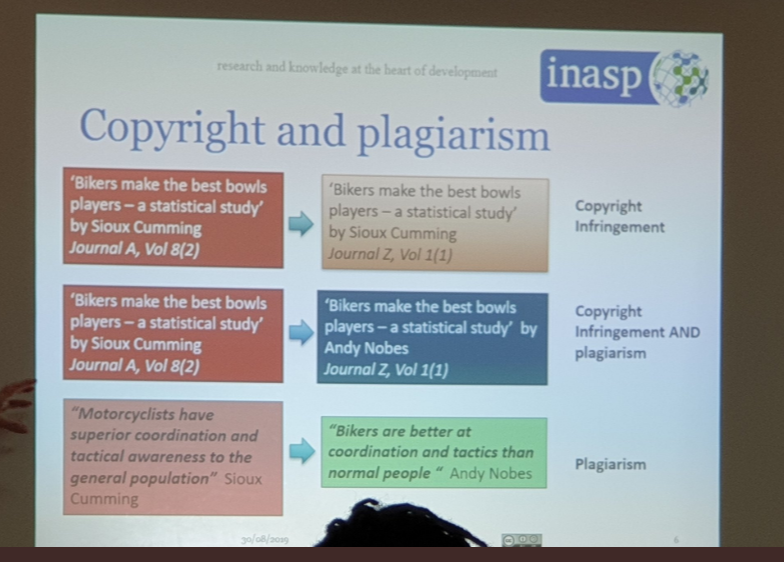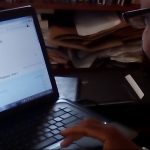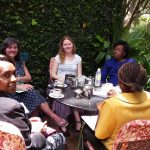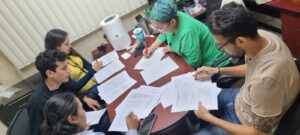
Improving journal publishing practices and standards for increased research equity
To help address the biggest challenges facing the world today, researchers need opportunities to participate fully in the research process whoever they are and wherever they are in the world. Last year the Ugandan National Council for Science and Technology (UNCST) and INASP held a dialogue event in Kampala to look at the challenges of achieving research equity in Uganda today and the steps that could be taken in the future.
Among other things, this event highlighted how an important component of improving global equity in research communication is supporting smaller, scholar-led titles in countries such as Uganda. This echoes the work that INASP has been doing for the past two decades through the Journals Online project and, more recently in partnership with African Journals Online, the Journal Publishing Practices and Standards (JPPS) journal assessment framework.
At the end of August, as part of a second meeting on research equity, UNCST and INASP brought together 30 participants for a two-day workshop for journal editors in Kampala. The aim was to help these editors improve their publishing standards to meet the requirements of JPPS and increase visibility of their journals and the research.
"Concerns are often raised about the perceived quality & transparency of publication processes for southern journals. This, in turn limits the perceived credibility of the research published with in those journals" @INASPinfo -today we learn to improve on publishing @UNCST_Uganda
— susan atim (@hatimsusan) August 29, 2019
Happening Now: @sdcumming facilitating sessions on "improving journal publishing practices and standards" in #Uganda, hosted by @UNCST_Uganda. @INASPinfo @narouganda pic.twitter.com/9Nkiwb0MxB
— Victoria Mbigidde (@VictoriaMbigidd) August 29, 2019
Did you know that for your publication to be open access its distribution & reproduction in any medium should not be restricted as long as the original work is properly cited? This and more at the online publishing training. @INASPinfo @UNCST_Uganda @sdcumming @AJOLinfo pic.twitter.com/dBJi0GhbKZ
— Victoria Mbigidde (@VictoriaMbigidd) August 29, 2019
ORCID on the other hand helps researchers track their publications throughout their career! It's free and takes 30 seconds to claim one! Young researchers are mostly encouraged to get one @wamanya2 @JWalakira @owensingura @INASPinfo @sdcumming @Nacrri_ug @NaCORIUganda
— Victoria Mbigidde (@VictoriaMbigidd) August 29, 2019
For more information about ORCID, see here. Another popular topic within the workshop was the discussion about copyright, permissions and plagiarism.
Day 2 kicks off with introduction to copyright and permission session (Creative Commons Licence). It's a good practice to grant authors the copyright since its usually their creation not the publisher! @INASPinfo @owensingura @JWalakira @wamanya2 @sdcumming pic.twitter.com/B5JEIq52qq
— Victoria Mbigidde (@VictoriaMbigidd) August 30, 2019
Day 2 introduces us to copyright & permissions – some highlights so far;
– Its important for authors/publishers to know the kind of permission they can grant users of their work.
– One of the benefits of open licenses is -it allows for authors to build on their work @INASPinfo pic.twitter.com/gv6gxSTJdx— susan atim (@hatimsusan) August 30, 2019
Need to learn more about the difference between copyright and plagiarism? Well, you just got serve!! Thanks to @INASPinfo @sdcumming and @UNCST_Uganda! @owensingura @BeckyNamubiru2 pic.twitter.com/JJl3XYqgRE
— Victoria Mbigidde (@VictoriaMbigidd) August 30, 2019
Copyright and plagiarism – Do we know the difference? Can they be similar? How do we apply our knowledge of these in our work as journal authors, educators at higher institutions of learning, etc. #researchequity @INASPinfo @JOLsProject @AJOLinfo @MakerereU @NdejjeUnive pic.twitter.com/RZ1JjR6MBM
— Women of Uganda Netw (@wougnet) August 30, 2019
The workshop also tackled potential inequities within Ugandan journals by discussing gender balances within the journals.
Eye opening discussion around #Gender issues and #PWDs as far as on-line publishing is concerned. Gender sensitive journal editorial boards are encouraged! Equality verses Equity #intersectionality @KabiriStella @sdcumming @BeckyNamubiru2 @INASPinfo @UNCST_Uganda pic.twitter.com/VblvRvWtaa
— Victoria Mbigidde (@VictoriaMbigidd) August 30, 2019
Research design should be gender considerate as guided by @EASEeditors 's sex & gender equity in research guidelines (SAGER) @INASPinfo @AJOLinfo @MakerereU @NdejjeUnive – more information on the SAGER at https://t.co/7xgGQiwyxA
— Women of Uganda Netw (@wougnet) August 30, 2019
Some great recommendations to solve this include; encouraging publishers, authors & peer reviewers to make use of the SAGER guidelines set out by the European Association of Science Editors @EASEeditors in research design #researchequity @INASPinfo @AJOLinfo @JOLsProject @wougnet pic.twitter.com/xXSBsRmoU7
— susan atim (@hatimsusan) August 30, 2019
Sioux Cumming will be speaking in a panel discussion about equity and diversity and sharing some of the experiences of journal editors in Uganda and elsewhere in the ALPSP International Conference on Thursday 12 September.

 Previous Post
Previous Post Next Post
Next Post



Please, when are we starting this year, Editorial process for journal editors? Thanks in anticipation!